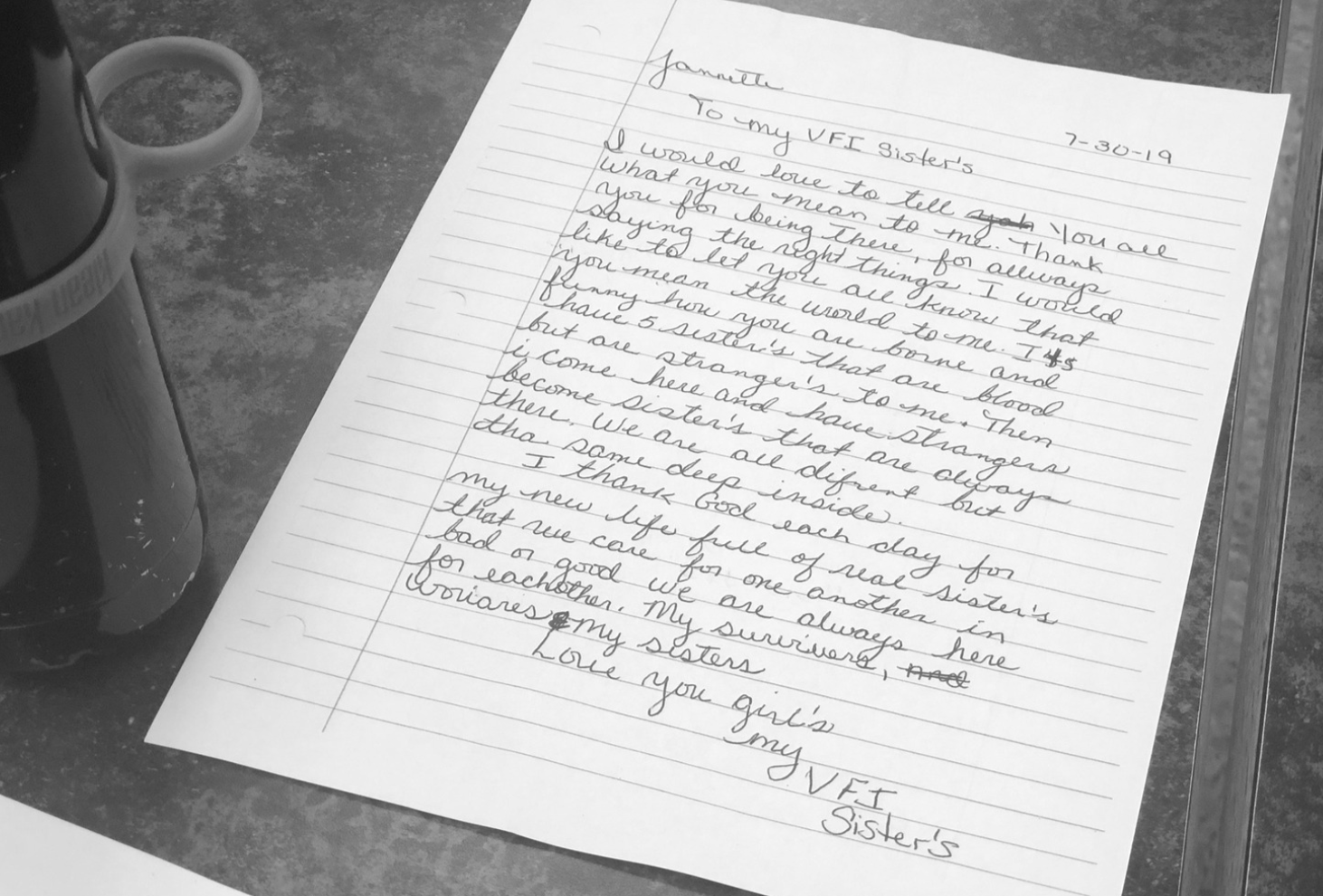Facts & Statistics about Women and Incarceration

According to the Prison Policy Initiative, on average 2,019,900 women are incarcerated each year in America, and 80% of them are mothers.
Learn more by checking out the Prison Policy Initiative, Northampton, MA
About Voices From Inside: Project scholars Nicole Hendricks, Professor of Criminal Justice, and Mary Orisich, Professor of Economics, have written about the power of Voices From Inside (VFI) for both women and their audiences. They state:
VFI continues and evolves the long-standing tradition of oral history and testimonial writing found in African American & LatinX communities. These traditions acknowledge the voice of the voiceless, and place the lived experiences of marginalized individuals front and center such that others (those who read, listen, watch) can gain a more complex, compassionate understanding of the author not as “the other” but as a dignified fellow human being. Moreover, VFI demonstrates the feminist tradition of community-building through sharing lived experiences which facilitates trust, understanding, and empowerment....The film seeks to have viewers engage with their own preconceptions about incarcerated women; to examine and discern how and why the media portrayal of incarcerated women is often sensationalized (eg. shows like “Orange Is the New Black”); to reflect on ways our social institutions have failed and how these women and VFI have succeeded in spite of this. We hope the film stimulates questions about systemic inequality, about patriarchy, and how these might be related.
Words Do Matter
Vera Institute has some excellent articles about the power of language and what it suggests as it pertains to the criminal legal system as well as the words we use to describe people who get entangled in the system. Erica Bryant, author of “Words Matter: Don’t Call People Felons, Convicts, or Inmates” writes, “Calling a person who was convicted of a crime a ‘criminal,’ ‘felon,’ or ‘offender’ defines them only by a past act and does not account for their full humanity or leave space for growth. These words also promote dangerous stereotypes and stoke fear, which stigmatize people who have been convicted of crimes and make it harder for them to thrive.”
Jerome R. Wright, a statewide organizer for the #HALTsolitary Campaign in New York, says, “Our humanity is maintained and respected by not referring to us in those impersonal and definitive terms, but by acknowledging our intrinsic value as human and not by defining us by the worst day or act in our lives.”
About Vera
More articles you may find informative:
“Since you asked: What role does drug enforcement play in the rising incarceration rates of women?” by Tianna Herring, Prison Policy Initiative
“Women make up about 10% of people in jails and prisons. This means that patterns unique to women’s incarceration are easily obscured when we focus exclusively on the larger, overall incarcerated population”
“Over the past 35 years, total arrests have risen 25% for women, while decreasing 33% for men. The increase among women is largely driven by drugs: During that period, drug related arrests increased nearly 216% for women, compared to 48% for men.”
“We also found that growth in women’s incarceration is primarily happening at the jail level. Unlike incarcerated men, incarcerated women are more likely to be in county or city jails than in state or federal prison. Most of these jailed women (60%) have not been convicted of a crime and are being held pretrial, often because they cannot afford bail. This isn’t surprising when you consider that most women held on bond have incomes that fall below the poverty line.”
Check out the Prison Policy Initiative for more information
The Healing Benefits of Expressive Writing
“Writing Can Help Us Heal from Trauma” by Deborah Siegel-Acevedo and published in the Harvard Business Review in July of 2021, explores the health benefits of expressive writing.
“Healing Through the Written Word” by Karen Cangialosi also examines the power to heal through writing. Cangialosi quotes the poet May Sarton, who wrote: ““… the only way through pain … is to go through it, to absorb, probe, understand exactly what it is and what it means ….”



